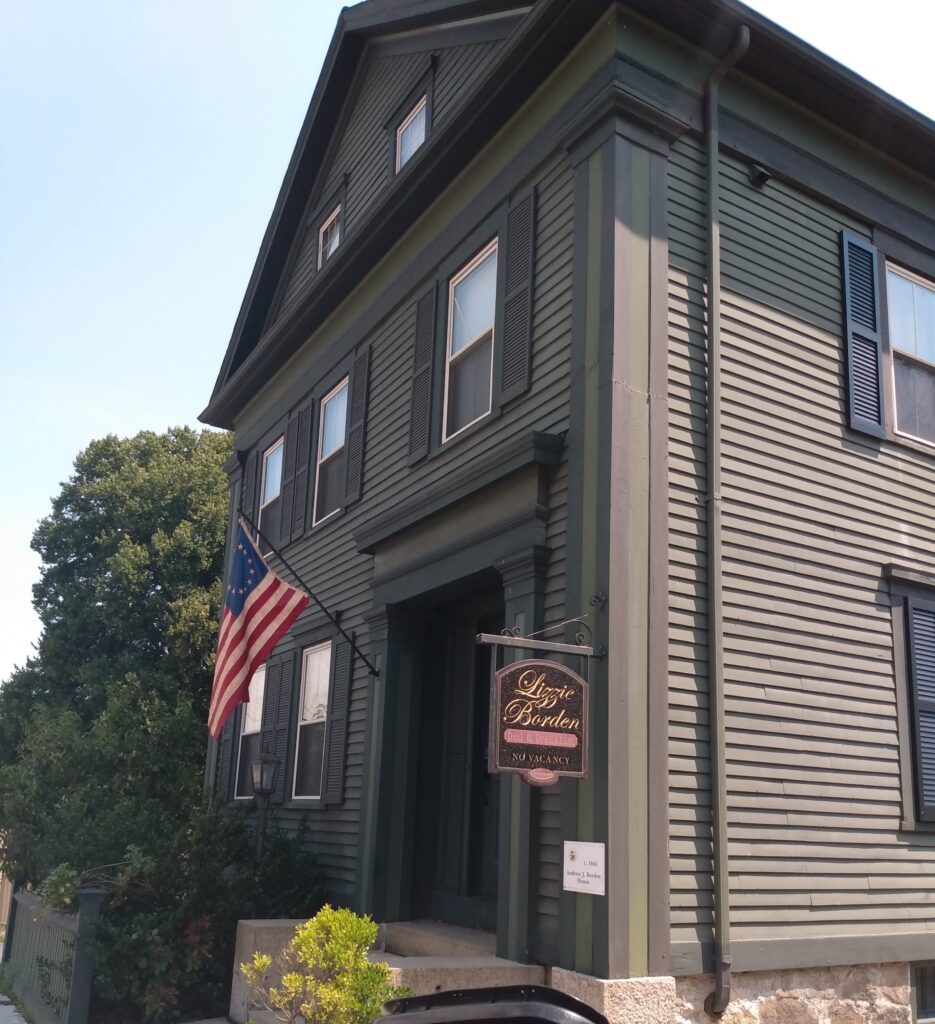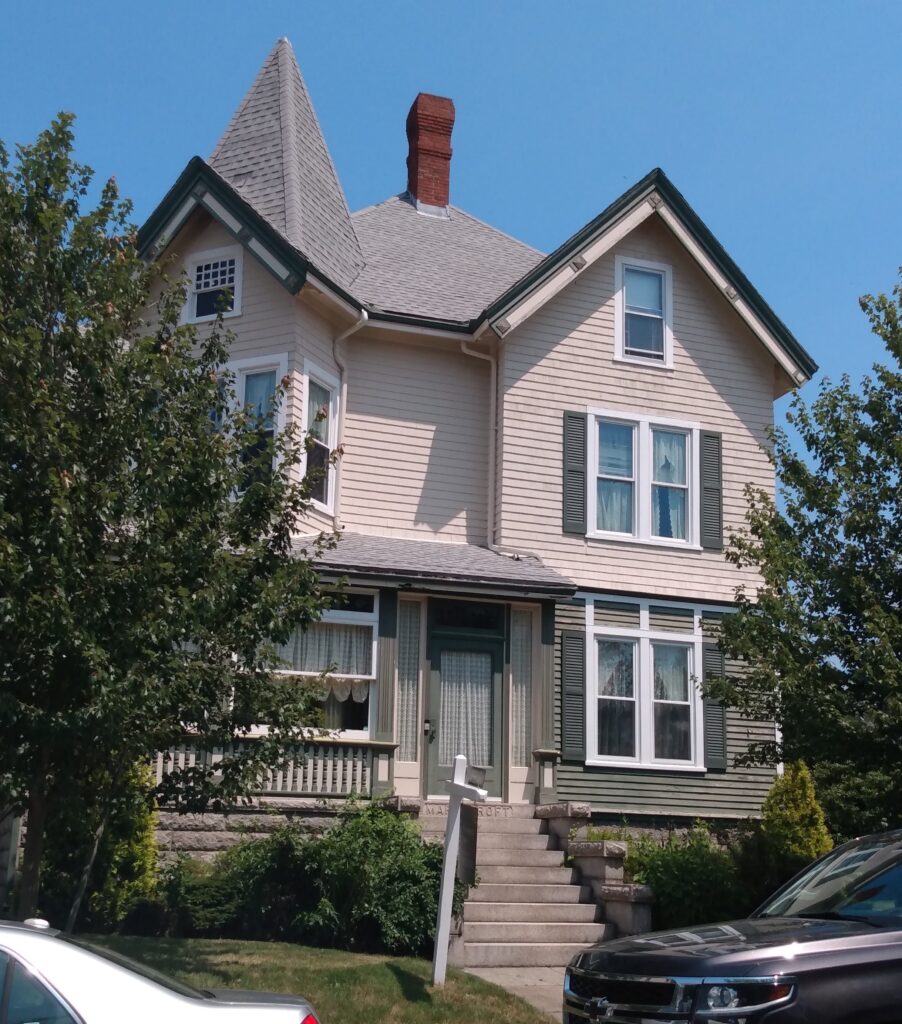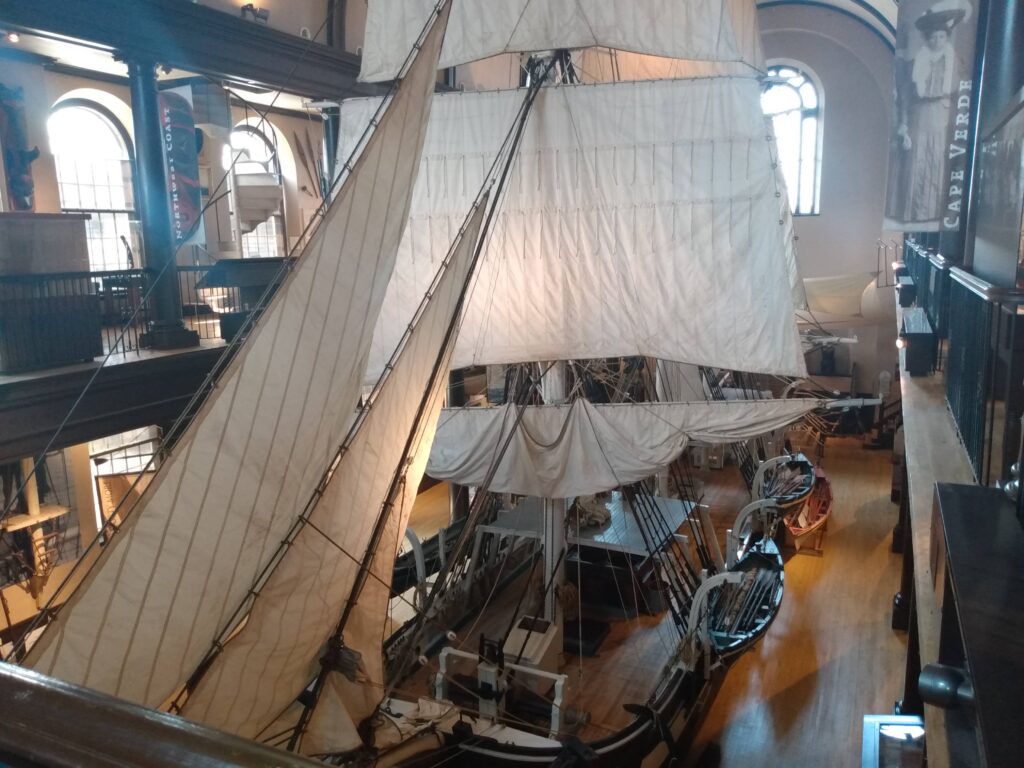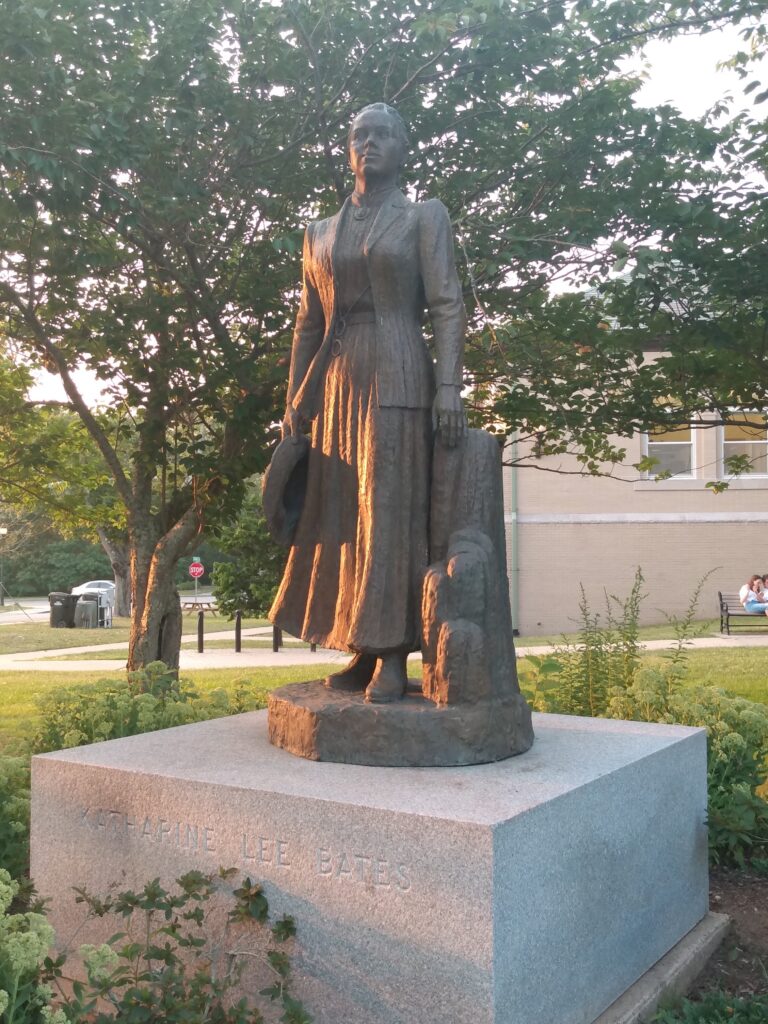I woke up at the Publick House at Sturbridge and decided to check out the historic park after a breakfast of sweet rolls and tea and a call to work to tell my boss that I planned to move to a leave my position for a new job. It had not been an easy decision and I dreaded the conversations to come, but it was time. I was glad to get on the road, but soon discovered–and would throughout the day–a lot of small museums and sites close on Tuesdays in this part of Massachusetts. I was not that upset about missing the Sturbridge venue, as I had only planned to see it because I was there. I had pre-arranged a room for the night on Cape Cod, so I examined the map and discovered that my best bet was to head south–leaving the things I wanted to see in Worcester for a later time.
My first stop of the day was Fall River, an industrial city I had visited before when I was sent to Providence, RI for work in 1999. My memory was of a town that was very distinct from Boston, with a strong Portuguese population, which offered a slower pace and quieter visit than any of the larger cities nearby. What it is most known for to outsiders is that it was where Andrew and Abby Borden were murdered on a hot August day in 1892.

I had visited The Lizzie Borden Museum and B&B in 1999 and taken the tour. I recall a large bookstore attached which offered loads of books about the murders; I was told that most B&B guests were retired police. The house’s odd layout–it had front and back stairs but no hallways, and the family members all locked their bedrooms due to mistrust–made it access to the murder sites very limited on the day of the murders. The younger daughter, Lizzie, was eventually tried for the crime and found not guilty. She and her sister moved to a grander home called Maplecroft, located on The Hill, a wealthier neighborhood more suited to their status in the town, or at least their status before the murders. Lizzie lived there for the rest of her life (the sisters fell out for an unknown reason after about a decade). She was never exonerated of the crime in the popular imagination. Whole books have been written on the subject but, sadly, once the sensational details are stripped away, the crime boils down one of domestic violence. The family lived with each other precariously, tensions were already high, the daughters were in a very vulnerable position in the event their father died and left their step-mother to inherit the family’s resources, and they resented the control the father had over their lives. What was surprising was how much the site had changed from my visit 20+ years before. The bookstore had been removed, which restored the original facade of the house. Ironically, the city has built a courthouse near the Borden home, so what had been a feeling of remove from the center had turned into an area bustling with people absorbed in their own activity before the courts. Police, lawyers, and families milled about, parking was hard to find, and the property seemed smaller and more enclosed than I recalled–certainly much more so than in 1892. The house had changed owners about six weeks before my arrival, and the previous owners had moved the bookstore to the site of the demolished old barn–where Lizzie claimed to have been during the murders–and it sold kitsch more appropriate to New Orleans than Fall River instead of books of research and commentary on the murders.

I had missed the morning tour. Since I had been there before, that did not bother me, although a review might have been in order. The recent sellers of the house also purchased Maplecroft and attempted to use it as a B&B as well, but it too was up for sale. I headed that direction expecting to find quiet in the tree-lined streets of Fall River’s old establishment neighborhood, where I planned to take a moment to decide what to do, but was surprised to find that the feeling of quiet, tree-lined Victorian wealth was gone. The Hill also bustled with traffic and Maplecroft sat without the old trees I remembered, feeling more normal than noteworthy. Later, a Massachusetts local would tell me that Fall River has boomed as more people are able to telework to Boston; the city seems to have taken on a whole new life. It was stunningly different than I remembered it.
Since my evening plans were already set, and the only remaining tour was in the mid-afternoon, I headed to New Bedford to see the Whaling Museum. But first, I was starving so I stopped to eat and a very nice local sandwich shop. I was so hungry I did not notice that the waitress brought me the wrong order. I was delighted to find the museum open for business; it was a real find. The opening film explained the

history of the industry, and the museum exhibits and ship model were really well done. I spent about three hours there. The bookstore was also expansive, but I went out for a walk around the area first. The Seaman’s Bethel and Old Mariner’s Home seemed to be well preserved, but they were closed for Tuesday. In addition to the maritime history, they celebrate Herman Melville‘s history there and at sea, and his references to the chapel in Moby Dick, which I then purchased at the museum shop. It was a big, hardcover version that was only possible because I was not traveling by air back to my home.
It was late afternoon by the time I finished in New Bedford, so I headed off to the Cape, where I had booked a few nights at a family owned road-side motel in Falmouth. I had begun staying in this type of accommodation in Maine, and this one lived up to its good online reviews. I phoned for the owner when I arrived. Interestingly, he asked me if I was alone and offered condolences when I said I was, the second time in two days that somebody had done that. My room was clean and bright, with marigold accents and wi-fi. Still hungry for ice cream, I went to Smitty’s Homemade Ice Cream and sat on a picnic bench

savoring it while I made plans for my days in the area. I went for a stroll along Falmouth, taking in the tribute to local poet, Katherine Lee Bates, who penned the poem that became the song, America the Beautiful, a favorite of mine. It was a gorgeous long evening, and I had been looking forward to this time at the Cape from the start of my trip planning. I had quit my job that day but, as I strolled near the sea, I thought only of peace ahead.
